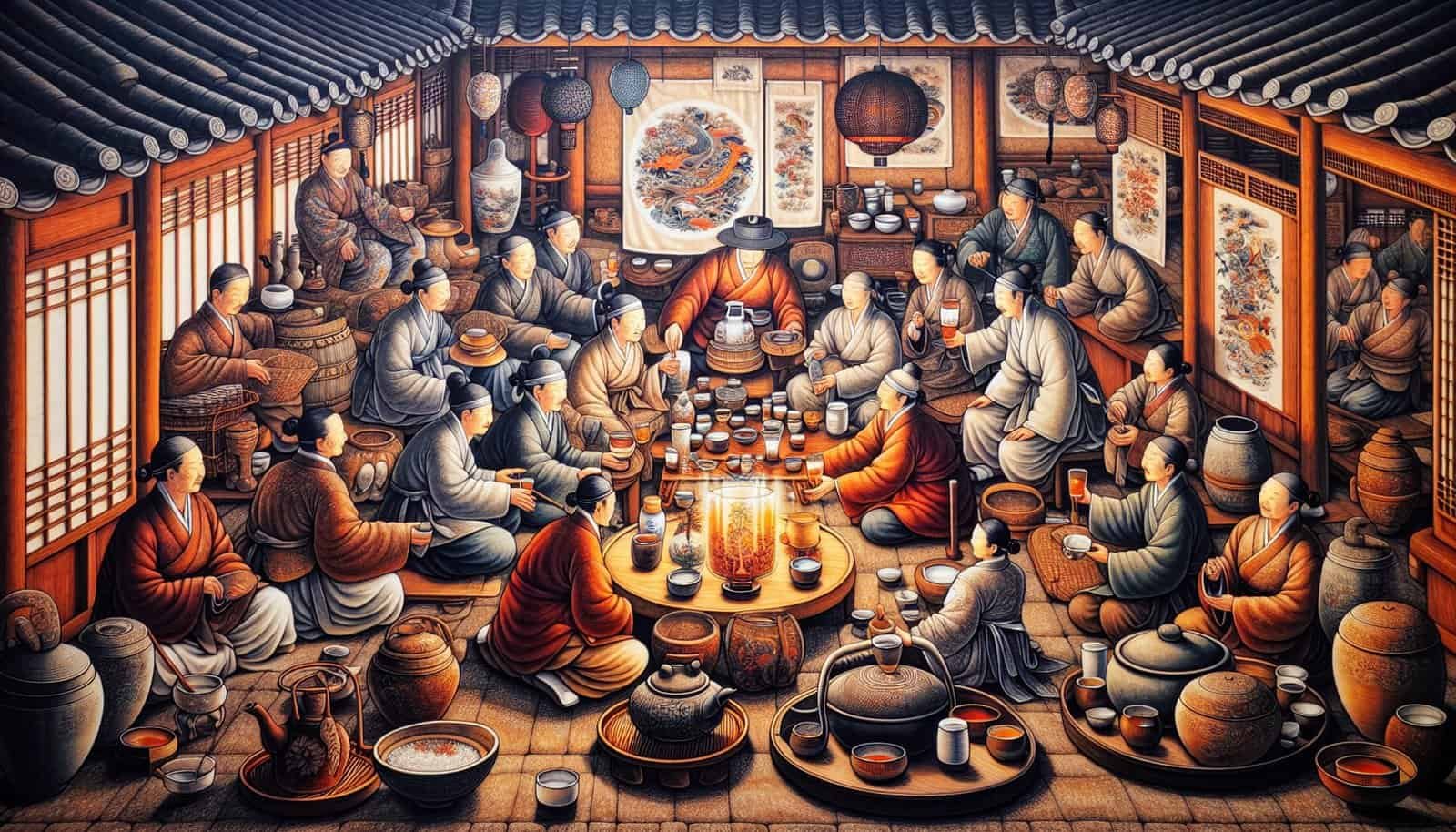Imagine yourself sitting at a quaint tea house in the heart of Seoul, surrounded by the serene ambiance of this ancient city. As you take a sip of the fragrant green tea, you can’t help but wonder, what role do tea and traditional beverages play in Korean culture? From ceremonial rituals to everyday life, these beverages have woven themselves into the very fabric of Korean society, offering a glimpse into the rich traditions and values that have shaped this vibrant culture for centuries. Tea and traditional beverages have a deep-rooted presence in Korean culture, playing a significant role in various aspects of daily life. From its origins steeped in ancient traditions to its evolution as a symbol of hospitality and social bonding, tea holds a special place in Korean society. Whether enjoyed during tea ceremonies or embraced for its health benefits, tea and traditional beverages have become an integral part of Korean culture.
The Origins of Tea in Korea
Tea has a long and rich history in Korea, dating back over a thousand years. It is believed that tea was first introduced to Korea during the Three Kingdoms period in the 6th century. Initially, tea was primarily consumed for its medicinal properties, as it was thought to have various health benefits. Over time, tea making techniques were refined and tea became an integral part of Korean culture.
The Influence of Buddhism on Tea Culture
Buddhism had a significant impact on the development of tea culture in Korea. As Buddhism spread throughout the country, tea became an integral part of Buddhist rituals and ceremonies. Monks began cultivating tea and using it as a tool for meditation and spiritual growth. The influence of Buddhism on tea culture can still be seen today, with Buddhist temples often being associated with tea houses and tea ceremonies.

The Evolution of Traditional Beverages
In addition to tea, Korea has a wide variety of traditional beverages that have evolved over the centuries. These beverages reflect the country’s agricultural traditions and utilize locally available ingredients. From rice-based drinks like sikhye to fruit-infused teas, traditional beverages in Korea have diverse flavors and are enjoyed for their unique tastes and refreshing qualities.
Tea as a Symbol of Hospitality
Tea has long been regarded as a symbol of hospitality in Korean culture. Offering a cup of tea to guests is a gesture of respect and warmth. It is a way to welcome visitors into one’s home and make them feel comfortable. This tradition of hospitality is deeply ingrained in Korean society, and sharing a cup of tea has become a common practice when welcoming guests.

Tea Ceremonies and Etiquette
Tea ceremonies hold a special place in Korean culture, representing a harmonious and tranquil way of life. These ceremonies are not only about drinking tea but also about the rituals and etiquette surrounding it. Korean tea ceremonies focus on the mindfulness and appreciation of tea, with careful attention given to the preparation and presentation. The ceremonies often follow a set of prescribed steps and are performed with grace and elegance.
Tea as a Social Bonding Tool
Tea serves as a powerful social bonding tool in Korean society. Whether it’s a casual gathering with friends or an important business meeting, tea often plays a central role in bringing people together. Sharing a cup of tea creates a relaxed and friendly environment, making it easier for individuals to connect and foster relationships.

Health Benefits of Tea and Traditional Beverages
Beyond its cultural significance, tea and traditional beverages in Korea are also valued for their health benefits. Korean teas are known for their natural ingredients and medicinal properties. Green tea, for example, is rich in antioxidants and is believed to aid in digestion and promote overall well-being. Many traditional beverages in Korea are also sought after for their detoxifying and rejuvenating qualities.
Popular Tea and Traditional Beverages in Korea
Korea is known for its wide array of teas and traditional beverages, each with its own distinct taste and characteristics. Some popular choices include nokcha (green tea), bori-cha (barley tea), oksusu-cha (corn tea), and gamnip-cha (persimmon leaf tea). The refreshing gukhwa-cha (chrysanthemum tea), sweet maesil-cha (Korean plum tea), and invigorating insam-cha (ginseng tea) are also highly favored. Additionally, the unique flavors of yeon-geun-cha (Korean lotus root tea), omija tea (five-flavored tea), and ssuk-cha (mugwort tea) provide a diverse range of options for tea enthusiasts.
In conclusion, tea and traditional beverages hold tremendous significance in Korean culture. From its ancient origins to its role in daily life, tea serves as a symbol of hospitality, a way to connect with others, and a means to promote health and well-being. The evolution of tea culture in Korea is a testament to the country’s rich history and its commitment to preserving its traditions. So the next time you find yourself sipping on a cup of tea in Korea, remember the deep-rooted cultural significance it holds.

